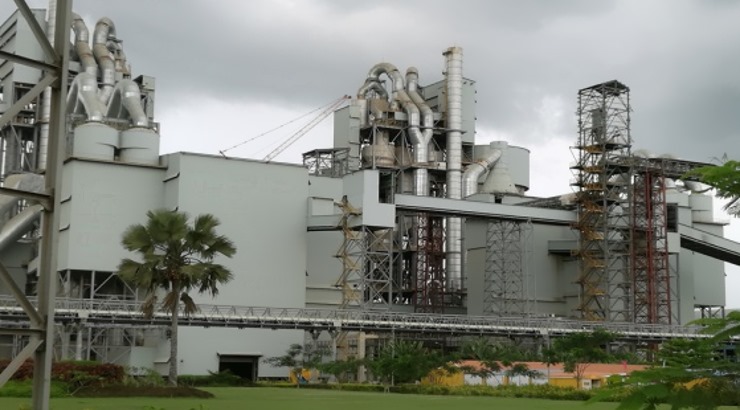Features
Types of Cement and their Uses
A detailed overview of popular cement types.

There are many types of cement used in construction works. Each type of cement is specially designed with unique properties for use in a specific application.
Here are the most popular cement types in the market.
1. Ordinary Portland cement
Suitable for all general kinds of concrete works, ordinary Portland cement is the most commonly used type of cement across the world, with an annual global production capacity of nearly four million cubic meters.
2. Rapid hardening cement
This type of cement achieves high strength in the early days, and it is therefore commonly used in concrete where formworks are removed at an early stage.
It contains higher lime content and C3S content, and finer grinding that offers better initial strength development compared with ordinary Portland cement.
The strength of rapid hardening cement at day 3 is comparable to the 7th-day strength of ordinary Portland cement with a similar water-cement ratio.
It is therefore commonly used in prefabricated construction works.
3. Quick setting cement
Designed to set more quickly than ordinary cement, quick-setting cement is one of the popular cement types for projects that are to be completed in a very short time and for concreting in still or running water.
4. Portland pozzolana cement
This type of cement is mainly produced by grinding pozzolanic clinker with Portland cement, or by blending ordinary Portland cement and fine pozzolana.
It offers high resistance to chemical attacks on concrete compared with other types of cement, hence its wide use in applications such as bridges, dams, piers, mass concrete works, and laying concrete underwater.
5. White cement
As the name suggests, this type of cement is white. It is a variety of ordinary Portland cement made from raw materials free from Iron oxide.
RELATED: 10 Largest Cement Companies in the World
White cement is mainly used for architectural applications such as terrazzo surfacing, precast curtain walling, etc, and for decorative tasks such as external rendering of buildings, enhancement of facing slabs, etc.
6. High alumina cement
Offering very high compressive strength, high alumina cement is made by melting a concoction of bauxite and lime and grinding with the clinker.
It is one of the rapid hardening types of cement with initial and final setting times of 3.5 hours and 5 hours, respectively.
High alumina cement is commonly used in projects where concrete is subjected to extremely high temperatures, frost, and acidic action.
7. Low heat cement
This type of cement is obtained by keeping the percentage of tricalcium aluminate below 6% by increasing the proportion of C2S.
A little tricalcium aluminate helps concrete to generate low heat of hydration, This makes these cement types ideal for mass concrete works such as gravity dams as the low heat of hydration stops the cracking of concrete due to heat.
8. Sulfate resisting cement
This type of cement helps to lessen the risk of sulfate attack on concrete and hence it is used for the construction of foundations in soils with high sulfate content.
RELATED: How to Check Cement Quality
It is also used for works exposed to severe sulfate action by water and soil in structures such as culverts, retaining walls, siphons, canal linings, etc.
9. Blast furnace slag cement
With properties similar to those of ordinary Portland cement, blast furnace slag cement is obtained by crushing the clinkers with about 60% slag.
This type of cement is mainly used for budget-constrained projects.
10. Hydrographic cement
Hydrographic cement is a highly workable and robust cement obtained by mixing water-repelling chemicals. It is mainly used for the construction of water-retaining structures such as dams and water tanks.














